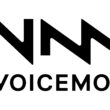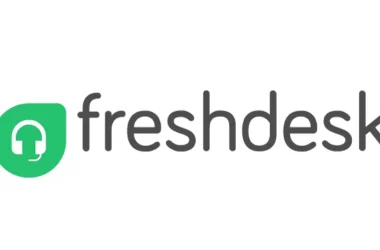In the ever-evolving realm of networking and wireless solutions, Ubiquiti’s UniFi has long held a position of trust and reliability. However, as technology continues to advance and businesses of all sizes demand more from their networks, exploring UniFi alternatives becomes a wise decision. In this comprehensive guide, we’ll take a deep dive into the world of UniFi alternatives, shedding light on their strengths and unique features.
UniFi: A Closer Look at Features and Limitations

Before we embark on the journey of discovering UniFi alternative networking solutions, it’s essential to gain a comprehensive understanding of what UniFi brings to the table and where it might fall short.
Key Features of UniFi
UniFi, renowned for its comprehensive suite of networking products, offers a range of features that have attracted users far and wide:
- Centralized Management: UniFi’s web-based dashboard serves as a hub for network administration, making it both accessible and user-friendly. Network administrators can efficiently monitor and control various devices from a single, intuitive interface.
- Scalability: UniFi’s scalability is a boon for businesses, enabling them to expand their networks without the headaches of a major overhaul. This flexibility allows companies to grow in tandem with their network demands.
- Security: Security is a priority in UniFi’s playbook, with advanced features in place to safeguard sensitive data. From firewalls to intrusion detection, UniFi provides a robust defense against potential threats.
- Quality of Service (QoS): UniFi’s QoS settings empower administrators to prioritize network traffic, ensuring a smooth and uninterrupted user experience. This feature is particularly useful for managing bandwidth in a way that meets specific needs.
Limitations of UniFi
While UniFi boasts numerous advantages, it’s not without its shortcomings:
- Pricing: The enterprise-grade features of UniFi often come with a higher price tag. This can be a deterrent for businesses or individuals operating on a tight budget seeking a cost-effective solution.
- Complexity: While UniFi is known for its user-friendliness, navigating advanced configurations may require technical expertise. Some users might find certain features challenging to set up and manage without a deeper understanding of networking.
- Vendor Lock-In: UniFi’s proprietary nature can limit users in terms of customization. This vendor lock-in may not appeal to those looking for more freedom and flexibility in tailoring their network.
Why Explore UniFi Alternatives?

Understanding Ubiquiti UniFi’s strengths and weaknesses is crucial in comprehending why exploring UniFi alternative networking solutions is not only wise but often necessary.
1. Diverse Needs
No two businesses or individuals have identical networking requirements. Exploring UniFi alternatives ensures you find a solution that caters specifically to your unique needs and objectives. Whether you’re a small business or a large enterprise, finding the right fit is essential.
2. Budget Considerations
Cost-effectiveness is a significant factor in today’s economic landscape. Users with budget constraints seek UniFi alternatives that offer robust performance without the premium price tag.
3. Customization
Some users seek a higher level of customization, enabling them to fine-tune their network to meet specific requirements. The ability to adapt and customize is a compelling feature for many.
4. Embracing Innovation
The tech industry never stands still, with new entrants continually bringing fresh ideas and innovations. By exploring UniFi alternatives, you ensure that you remain at the forefront of technological advancements.
Commonly Used UniFi Alternatives for Every Networking Need

Now, let’s delve into a dozen prominent UniFi alternatives, each with its unique set of features and strengths:
1. Cisco Meraki: Cloud-Managed Excellence
Cisco Meraki offers cloud-managed networking solutions with a user-friendly dashboard, making it a top choice for businesses seeking ease of management. Their centralized cloud-based platform simplifies network deployment and management, ensuring a hassle-free experience. From access points to switches, Cisco Meraki provides seamless integration, allowing you to focus on your business rather than network complexities.
2. Aruba Networks: A Hewlett Packard Enterprise Solution
Aruba Networks, a subsidiary of HPE, provides a range of networking and wireless solutions, including Aruba Instant, for quick deployment. Their Instant On series caters to small and medium-sized businesses, offering high-performance Wi-Fi that is easy to set up. With Aruba Networks, you can expect seamless roaming and reliable connectivity.
3. Ruckus Wireless: High-Performance Wi-Fi
Ruckus Wireless specializes in high-performance Wi-Fi solutions with a focus on wireless access points and controllers. Their patented BeamFlex technology ensures excellent coverage and minimizes interference. Whether you need indoor or outdoor solutions, Ruckus Wireless can provide you with the connectivity and reliability you need.
4. MikroTik: Versatility Meets Affordability
MikroTik’s RouterOS software turns standard PC hardware into a router, offering a wide range of features and affordability. If you’re tech-savvy and appreciate customization, MikroTik’s extensive feature set and reasonable price point make it an attractive option. From routing to advanced firewall capabilities, MikroTik provides a cost-effective solution for network enthusiasts.
5. TP-Link Omada: Affordable and Scalable
TP-Link’s Omada series is known for its affordability and scalability, making it a popular choice for small and medium-sized businesses. Omada’s cloud-based controller streamlines the management of your network, allowing you to add or remove devices as your business grows easily. Their access points offer reliable performance, ensuring a smooth wireless experience for your users.
6. Fortinet: Security-Centric Networking
Fortinet offers integrated wireless options within its FortiGate series, focusing on network security. If security is your top priority, Fortinet’s comprehensive security features, including intrusion prevention and application control, can safeguard your network. While it excels in security, Fortinet also provides reliable wireless connectivity.
7. Extreme Networks: Enterprise-Grade Solutions
Extreme Networks provides a variety of wired and wireless solutions for enterprises, along with cloud-based management through ExtremeCloud IQ. Extreme Networks offers a wide range of network switches, access points, and routers to meet the demands of large organizations. Their cloud management platform ensures centralized control and advanced analytics, allowing you to optimize your network for performance.
8. Open Mesh: Cloud-Managed Simplicity
Open Mesh, now part of Datto, offers cloud-managed Wi-Fi access points and switches for various deployment scenarios. Open Mesh’s cloud controller simplifies network management, making it an excellent choice for businesses with multiple locations. With seamless roaming and easy guest access, Open Mesh provides a user-friendly experience for network administrators and users alike.
9. EnGenius: For Small and Medium-Sized Businesses
EnGenius provides access points, switches, and management software tailored for small and medium-sized businesses. Their wireless solutions focus on reliability and coverage, ensuring that your network meets the demands of your business. EnGenius’ easy-to-use management interface simplifies network administration, allowing you to focus on your core operations.
10. Aerohive Networks (now Extreme Networks): Simplified Wi-Fi Management
Aerohive, now part of Extreme Networks, offers cloud-managed wireless access points and switches with a focus on ease of use. Aerohive’s solution is designed for businesses seeking simplicity and reliable connectivity. Their cloud management platform provides visibility and control over your network, ensuring a seamless user experience.
11. Netgear Business: Reliable and Affordable
Netgear’s business-focused solutions include switches, access points, and security appliances suitable for budget-conscious users. Netgear offers a balance between affordability and performance, making it an excellent choice for small businesses. With a user-friendly interface and reliable hardware, Netgear ensures that your network runs smoothly.
12. Cambium Networks: Wireless Broadband Solutions
Cambium Networks offers point-to-point and point-to-multipoint wireless connections for various industries and service providers. If your networking needs extend beyond traditional Wi-Fi, Cambium Networks’ wireless broadband solutions can connect remote locations, ensuring reliable communication. Their ePMP series provides cost-effective and efficient wireless connectivity.
Factors To Consider While Choosing The Perfect UniFi Alternative

When choosing the ideal UniFi alternative, several factors come into play. Consider the following:
1. Budget and Affordability
Determine your budget and seek alternatives that align with your financial capabilities. Remember, some options, like MikroTik and TP-Link Omada, offer cost-effective solutions without compromising performance.
2. Scalability
Evaluate whether the UniFi alternative can grow with your network needs to accommodate future expansion. Cisco Meraki and Extreme Networks are known for their scalability, making them suitable for businesses of all sizes. The ability to expand seamlessly as your business grows is crucial.
3. Customization
Assess the level of customization available in the alternative to meet your specific network requirements. MikroTik and Open Mesh offer extensive customization options, allowing you to tailor your network to your exact needs. Customization ensures your network caters to your unique requirements.
4. Ease of Management
Consider the user-friendliness of the UniFi alternative’s management interface, as it can impact the daily administration of your network. Aruba Networks and TP-Link Omada are known for their intuitive management platforms, ensuring hassle-free administration. An easy-to-use management interface simplifies your daily network tasks.
5. Security Features
Examine the security features offered by the alternative to ensure your data and network are adequately protected. Fortinet and Cambium Networks prioritize security, making them ideal for businesses with stringent security requirements. Robust security features are essential to safeguard your data and network from threats.
Conclusion
In the dynamic world of networking solutions, the search for the perfect UniFi alternative is a strategic endeavor. Each UniFi alternative highlighted in this guide brings its own unique advantages and capabilities, catering to diverse needs and preferences.
By carefully weighing your requirements and evaluating factors such as features, scalability, customization, ease of management, and security, you can make an informed choice. Whether it’s Cisco Meraki’s seamless cloud management or Cambium Networks’ wireless broadband solutions, rest assured that a world of networking possibilities awaits, ready to enhance your network and elevate your connectivity experience.









